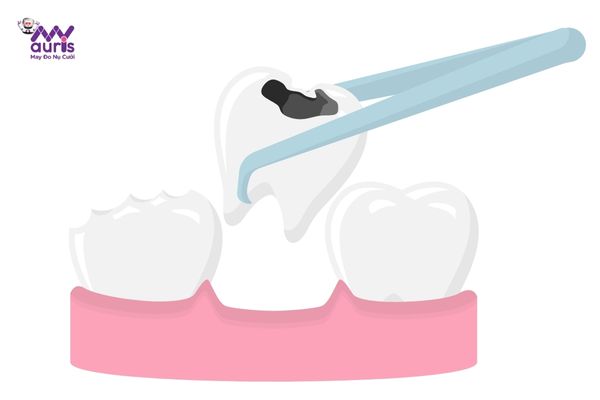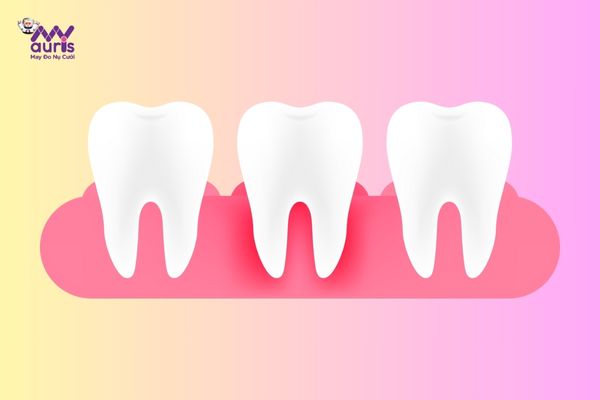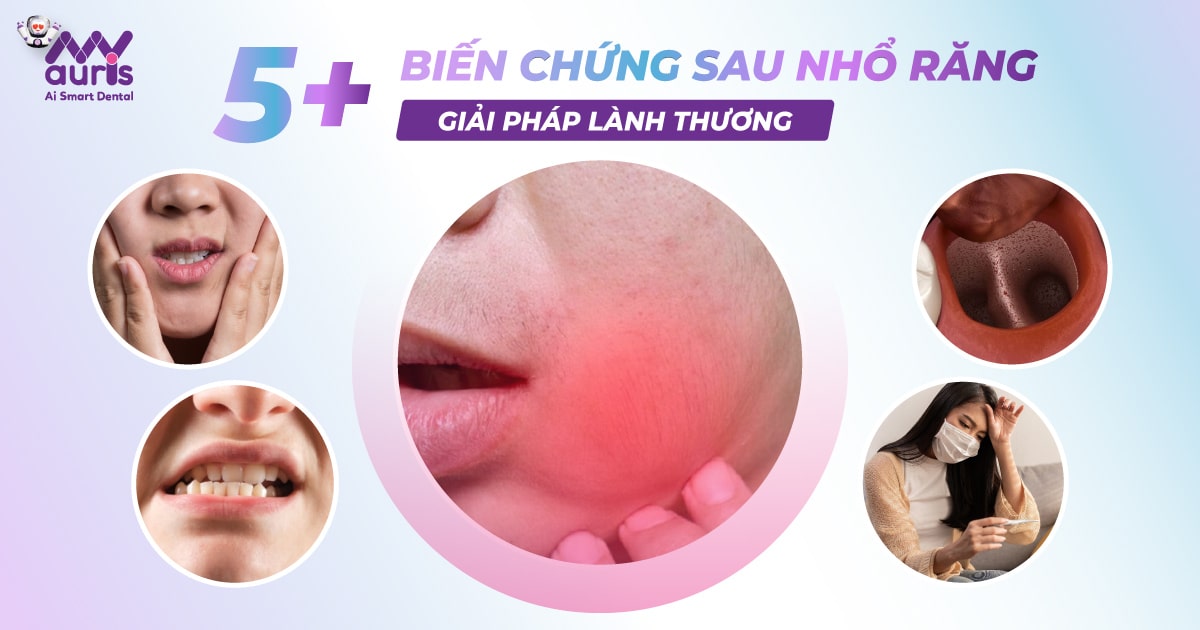Tooth extraction is a dental technique to remove the entire tooth from the jawbone. For some reason, maybe the tooth is damaged or no longer functional, so people have their teeth extracted. However, tooth extraction also makes many people worried because it can cause health complications. To better understand complications after tooth extraction, please follow the following article with My Auris.
In what cases should teeth be extracted?
When teeth have problems or are severely damaged and cannot be saved, the dentist prescribes tooth extraction so as not to affect the entire jaw. Some cases where tooth extraction is indicated are as follows:
- Wisdom tooth extraction: Wisdom teeth that are misaligned, impacted, oblique, etc. will not only affect the 7th molar but also increase dental problems such as gingivitis, tooth decay, etc. Therefore, wisdom tooth extraction helps protect and improve oral health.
- Braces: is an orthodontic technique using specialized dental instruments to help straighten teeth into the correct position on the jaw. In cases where the jaw is narrow and does not have enough space, the doctor will prescribe unnecessary tooth extraction to increase the space for the teeth to move easily, increasing efficiency after braces.
- Dental diseases: cases of serious oral diseases such as tooth decay, periodontitis, abraded teeth, etc. will be forced to be extracted to prevent infection, affecting the entire jaw.

If people fall into the above cases, people will have to have their teeth extracted to protect their oral health. However, to have a successful, safe tooth extraction without complications, everyone needs to choose a reputable dentist that ensures quality standards, doctor’s skills, etc. 400;”>When it comes to tooth extraction, besides being afraid of pain, many people also worry aboutcomplications after tooth extraction. Because these complications will greatly affect oral health in particular and body health in general. Here are some complications after tooth extraction that everyone needs to know:
Prolonged bleeding and swelling and pain
After tooth extraction, bleeding and swelling are considered normal. This condition only lasts a few hours or 1-2 days. If you use pain relieversand take good care, bleeding and pain will gradually subside.
However, if the symptoms do not decrease but continue to occur continuously and for a long time, the possibility of tooth extraction is infected or there is a remaining tooth root. At this time, everyone needs to see a dentist immediately to be examined, find the cause and promptly fix it.
If the condition is subjective and prolonged, the infection will become more severe, leading to sepsis and even death.

Bite misalignment after tooth extraction
Bite misalignment is also a complication after tooth extraction that many people worry about settle. After certain teeth are extracted, the remaining teeth may move and shift, affecting the bite. A misaligned bite can cause loss of aesthetics, interfere with chewing and over time lead to pain in the temporomandibular joint. With this condition, doctors often recommend denture implants to compensate for missing teeth and improve bite problems.
Alveolar osteitis
After tooth extraction, a blood clot will form right at the tooth extraction site to protect the bones, muscles, tissues and nerves. In case a blood clot forms or dislodges prematurely, it will cause inflammation of the alveolar bone, also known as dry socket.
When this complication occurs, severe pain appears. At the same time, when observed, white bone can be seen exposed at the tooth extraction site and in the mouth. When seeing these signs, people need to see a doctor immediately to get the fastest solution.
Alveolar bone loss
When teeth are extracted, there will be complications of alveolar bone loss. The reason is that the alveolar bone is quite soft, so it easily dissolves when there is a gap in the tooth or is attacked by bacteria. This is one of the seriouscomplications after tooth extraction because it not only affects chewing but also hinders the process of implanting dentures later.
In addition, alveolar bone loss also causes many oral health and aesthetic problems such as receding gums, misaligned teeth, jaw bone loss,…
Damage to the trigeminal nerve
Signs of complications of trigeminal nerve damage are pain, itching, facial numbness, tongue numbness and difficulty eating. These complications may last throughout life.
Prolonged fever
After tooth extraction, body temperature dropsThe temperature increases slightly from 38-39 degrees Celsius. This mild fever is not a cause for concern, as long as it is temporary and does not last more than 2 days. If the temperature increases and does not decrease, people should notify and see a doctor for timely treatment because it is most likely a sign of infection.

The complications after tooth extraction all affect health and are even extremely dangerous. Not only does it follow throughout life, but there is also the risk of death. Therefore, advice from doctors, when extracting teeth, you should choose reputable dental facilities, ensuring quality, a team of doctors with good expertise, skills, experience,… justify;”>Complications after tooth extraction occur due to many reasons, of which two main causes are often the doctor’s skills, poor quality dental facilities and improper care and hygiene after tooth extraction. Therefore, in addition to learning and choosing a quality and reputable dental facility, people should also know how to take care of their oral health after tooth extraction to prevent complications from occurring.
- Bite firmly on cotton balls/gauze for 30 minutes. If there is bleeding, use cotton wool/gauze gently.
- Do not push your tongue or put your hands or tools into the wound, and do not spit continuously.
- Do not rinse your mouth with salt water for at least 6 hours after tooth extraction.
- When the anesthetic wears off, you should eat cold food and apply a cold compress to the cheek where the tooth was extracted to reduce swelling and pain.
- Normal diet, but in the first days of pain, priority should be given to liquid foods that are easy to swallow, avoiding over-chewing. And when eating, be careful of food falling into the tooth extraction site.
- Do not smoke or drink alcohol after tooth extraction (should stop at least 48 hours after tooth extraction, chemicals in cigarettes and alcohol can affect blood clots and can cause dry socket inflammation, making the wound susceptible to infection and difficult to heal.)
- Take pain relievers and reduce swelling as prescribed by your doctor
- Gently clean your teeth, using a moderate sized brush, combined with dental floss to clean plaque and food debris. On the second day after tooth extraction, you can use salt water and waterMouthwash for oral hygiene to increase cleaning and disinfection effectiveness.
- Re-examine immediately after showing unusual signs such as heavy bleeding and large swelling.

Hopefully the information in the article about complications after tooth extraction will help people gain more knowledge and experience. Besides choosing dentistry, you also know how to take care of your teeth to limit complications. If you still have any concerns, please contactMy Auris Dental immediately for more detailed advice and answers.
Anh Thy





